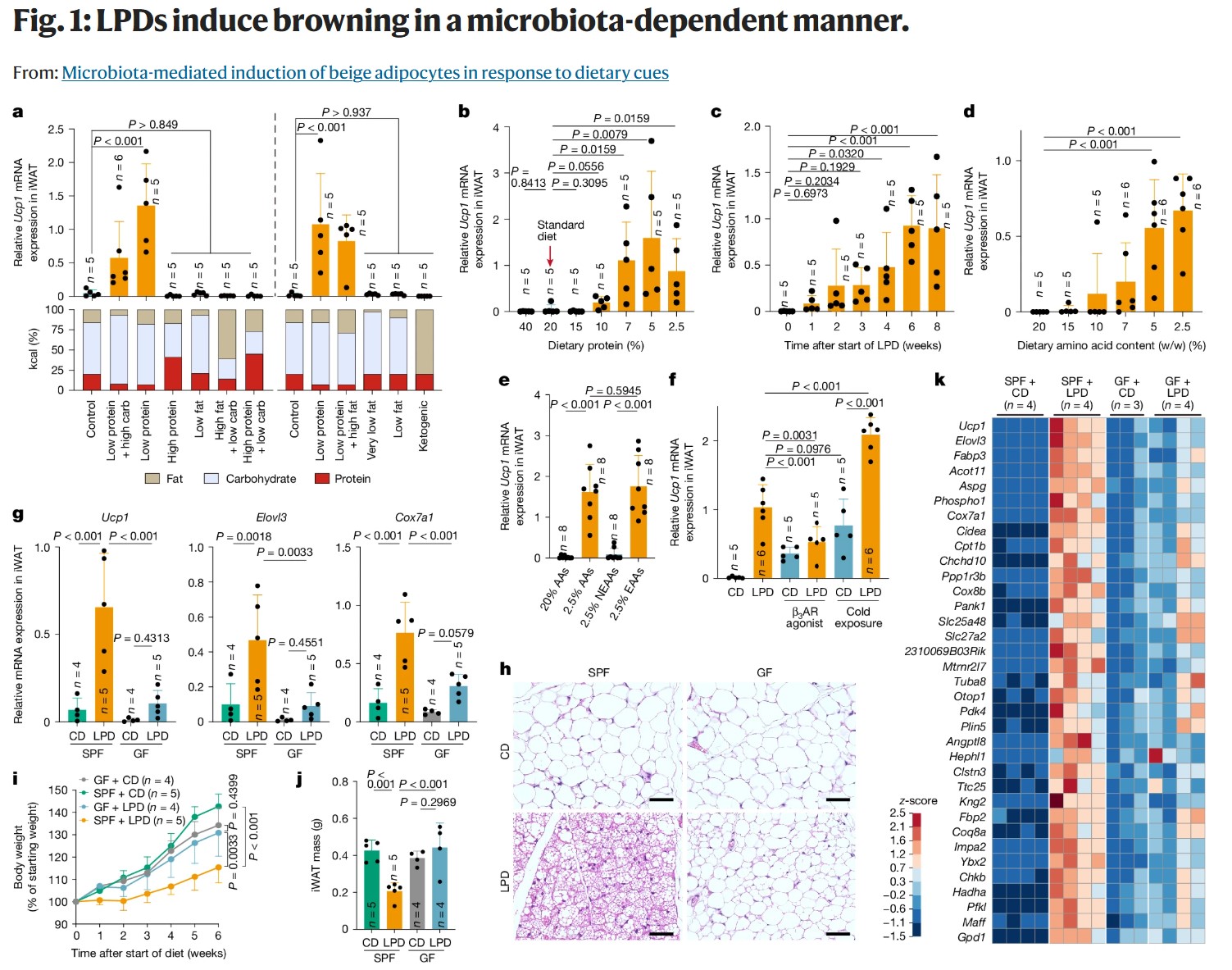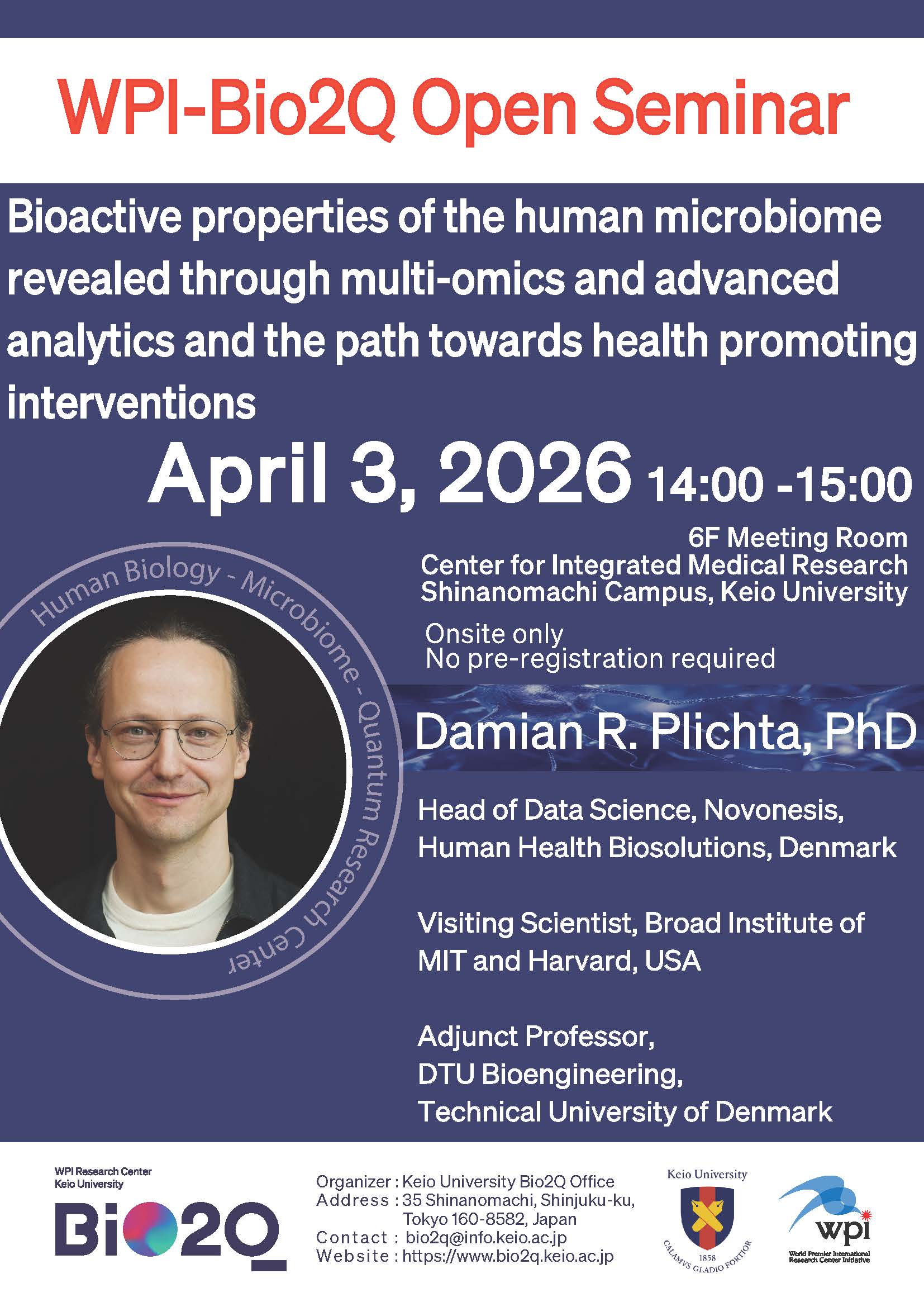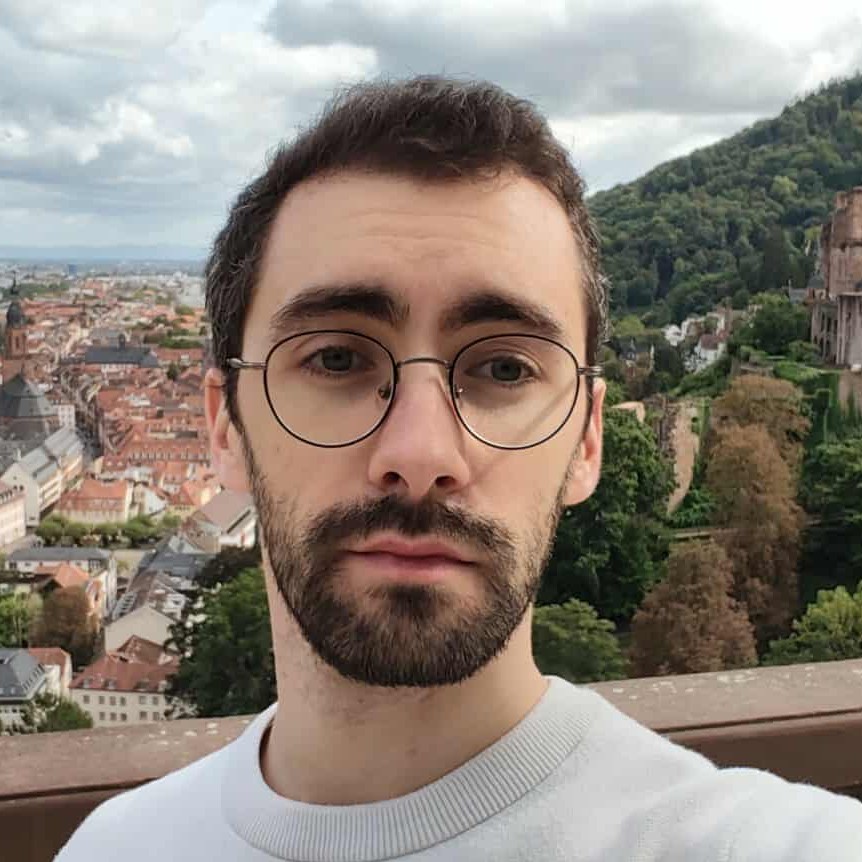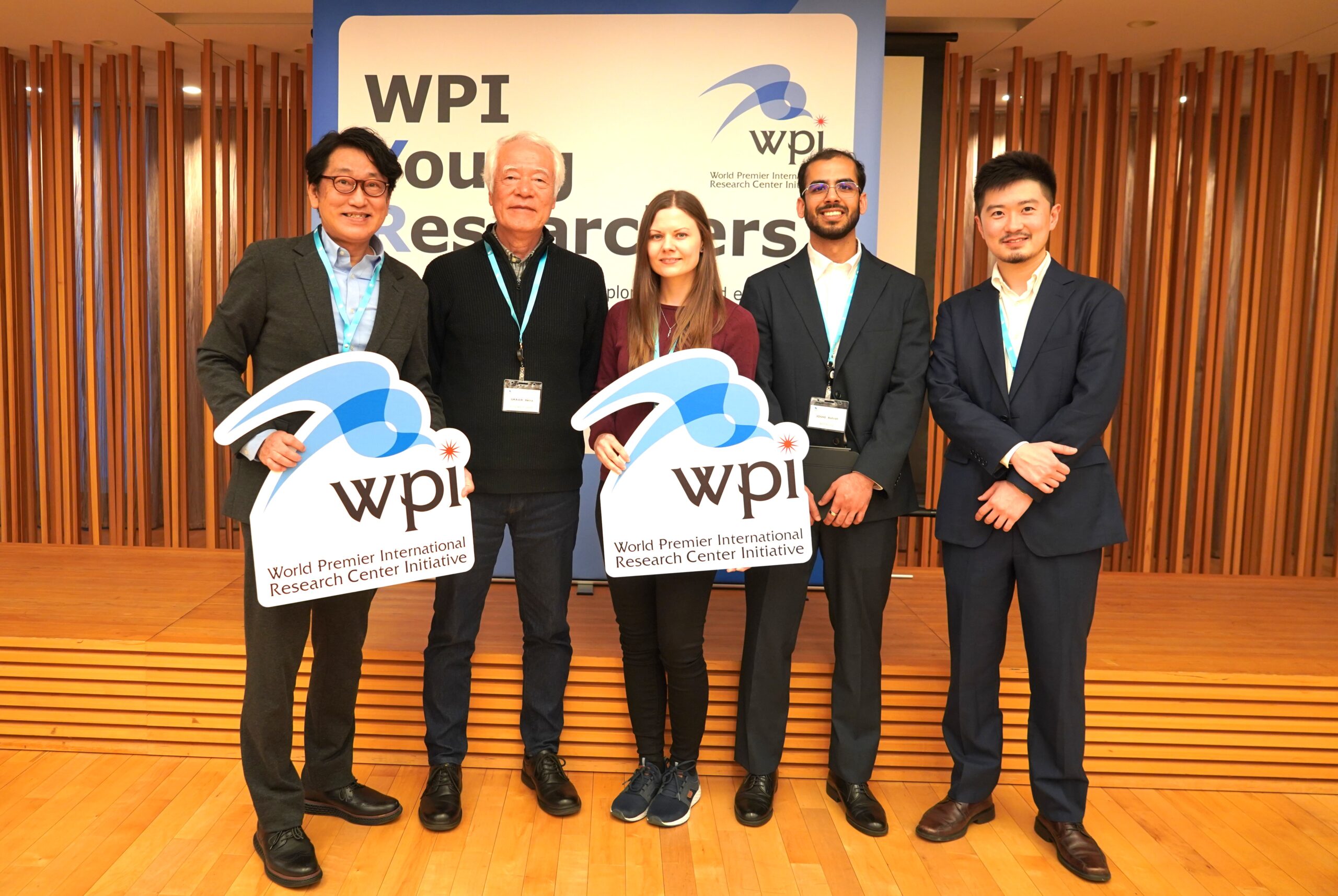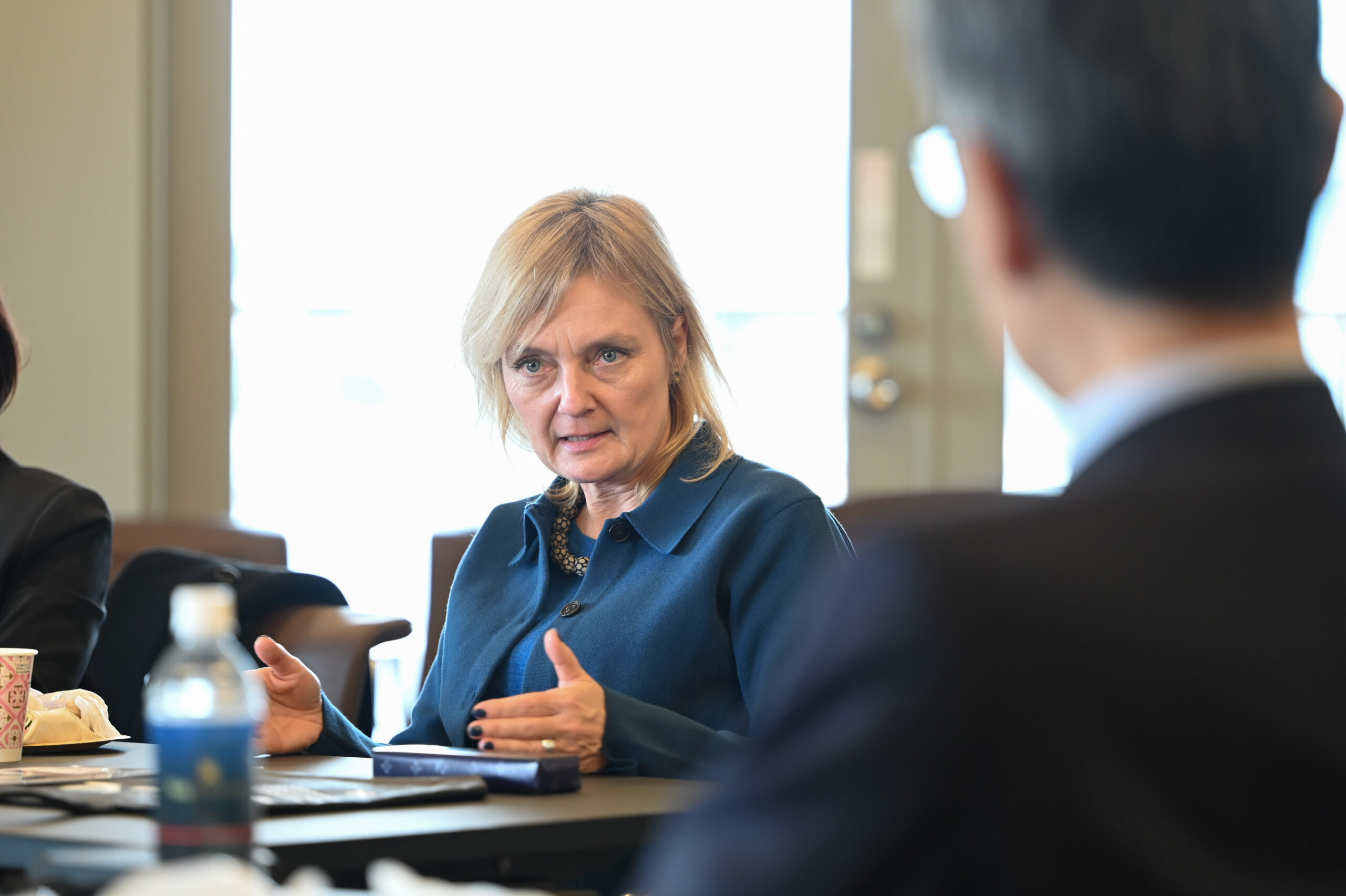EVENT
[Open Seminar] Tsutomu Suzuki, Ph.D.
September 11, 2024
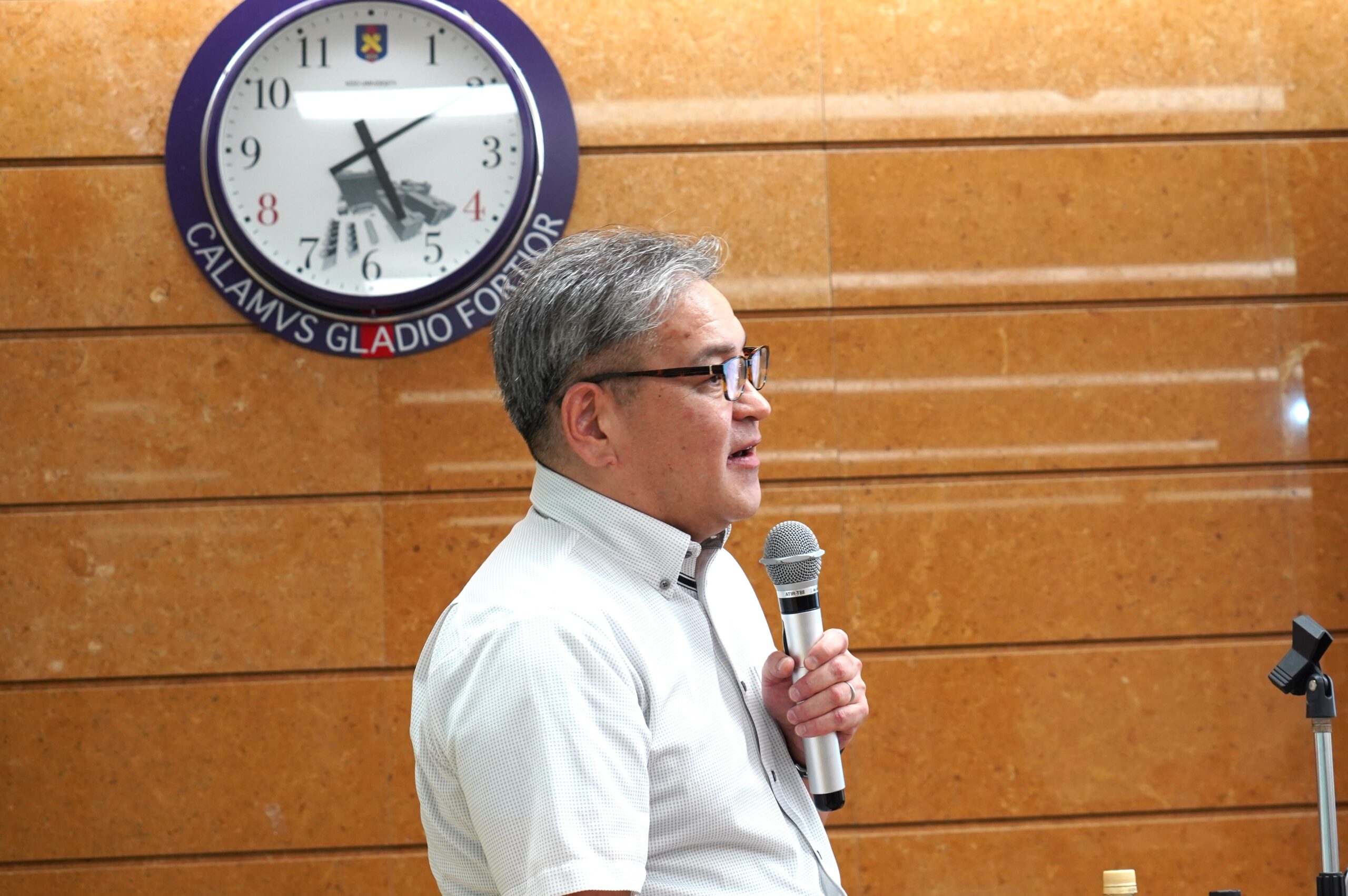
Tsutomu Suzuki, Ph.D.
Credits: WPI-Bio2Q
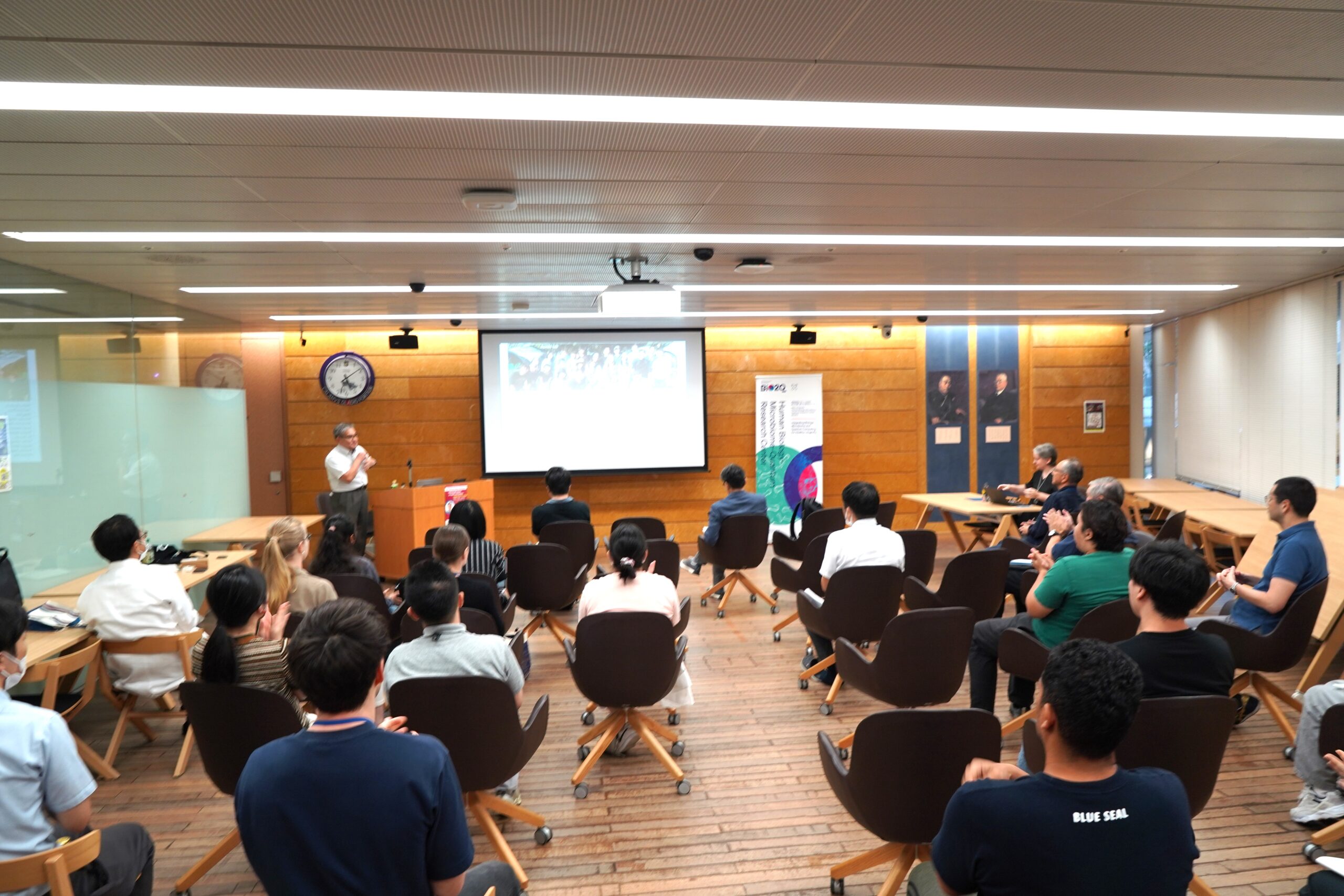
At the seminar
Credits: WPI-Bio2Q
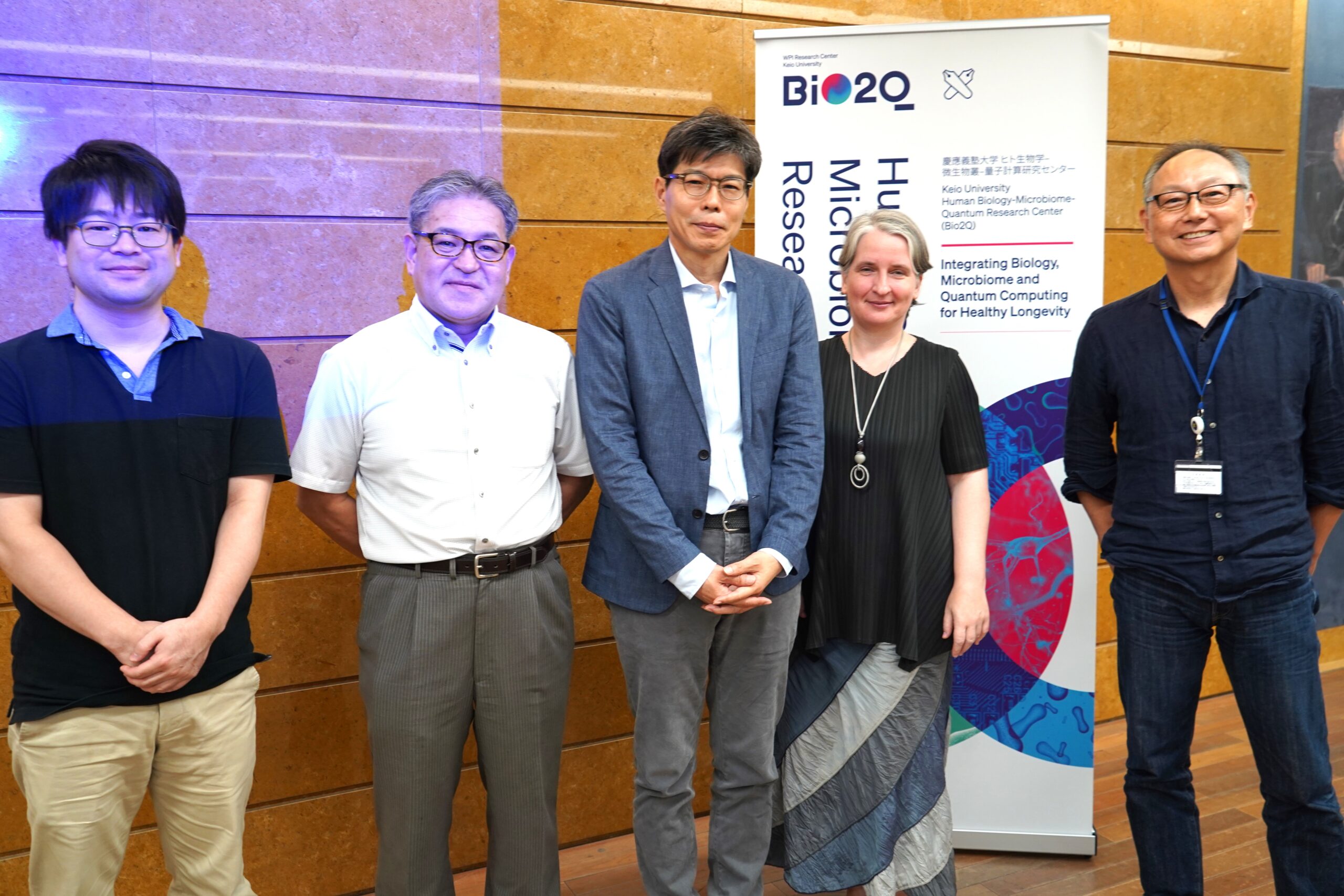
Credits: WPI-Bio2Q
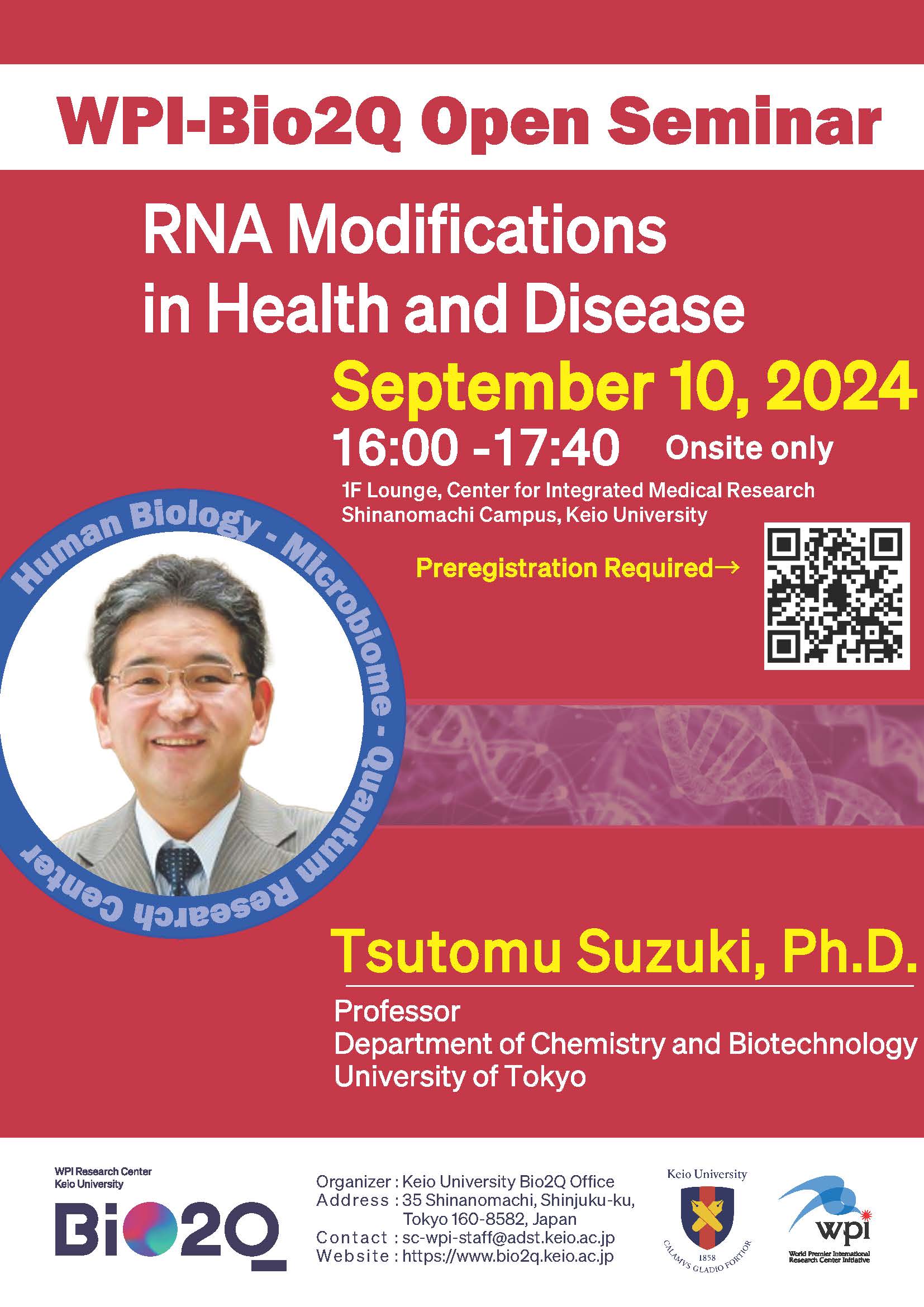
Poster
Credits: WPI-Bio2Q
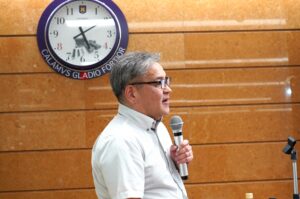
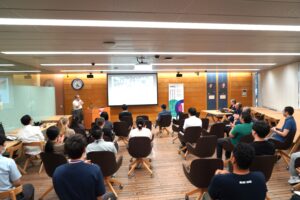
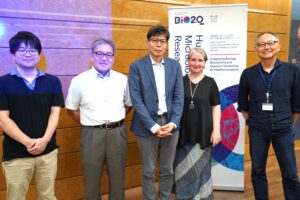
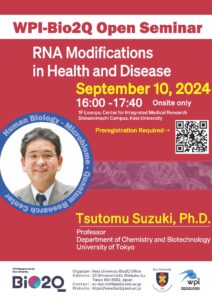




Keio University Human Biology-Microbiome-Quantum Research Center (WPI-Bio2Q) held an open seminar as follows:
| Date & Time | Tuesday, September 10, 2024, 16:00 -17:30 |
|---|---|
| Venue | 1F Lounge, Center for Integrated Medical Research, Shinanomachi Campus, Keio University (Onsite only) |
| Title | RNA Modifications in Health and Disease |
| Speaker | Tsutomu Suzuki, Ph.D. Professor, Department of Chemistry and Biotechnology, University of Tokyo |
| Language | English |
Abstract
RNA molecules frequently undergo post-transcriptional modifications, which are essential for their proper function. To date, about 150 different types of chemical modifications have been identified in various RNA molecules across all domains of life. There are still a number of novel modifications to be discovered. RNA modifications appear to confer chemical diversities to simple RNA molecules basically composed of four letters, to acquire a greater variety of biological functions. These modifications play critical roles in stability and functions of RNA molecules. The physiological importance of RNA modification has been demonstrated by human diseases caused by aberrant RNA modification. We reported a severe reduction in the frequency of tRNA modifications in mitochondrial disease patients, like MELAS and MERRF. These findings provided the first evidence of RNA modification disorder. We have termed “RNA modopathy” as a new category of human diseases.
Queuosine (Q), a tRNA modification characterized by a 7-deazaguanosine with a bulky side chain, is widely present in both bacteria and eukaryotes. Unique to this modification, the free base of Q, known as queuine, is incorporated through a base replacement reaction, converting guanine (G) to Q. Eukaryotes, including humans, cannot synthesize queuine and must obtain it as a dietary nutrient from gut microbiota or dietary sources. In humans and other vertebrates, Q can be further modified by glycosylation, forming either galactosyl-queuosine (galQ) or mannosyl-queuosine (manQ). The function of these glycosylated Q modifications remained unclear for nearly half a century after their discovery. Recently, we identified two glycosyltransferases responsible for the formation of galQ and manQ and elucidated the biosynthesis, functional roles in protein synthesis, and physiological significance of these glycosylated Q tRNA modifications.
More Bio2Q News
[Publication] Microbiota-mediated Induction of Beige Adipocytes in Response to D...
A research group led by Bio2Q Center Director Professor Kenya Honda has revealed how a low-protein diet induces energy-burning beige adipocy...
【4/3 Seminar】WPI-Bio2Q Open Seminar: Damian R. Plichta, PhD
Keio University Human Biology-Microbiome-Quantum Research Center (WPI-Bio2Q) will hold a seminar as follows. This is an event for faculty, ...
New Member - Dr. Leonard Dubois
Introducing new member of Bio2Q We are excited to welcome Dr. Leonard Dubois as a Postdoctoral Fellow at Bio-1 Core of Bio2Q. "Hello, I ...
【Event Report】WPI Young Researchers Forum
Keio University Human Biology-Microbiome-Quantum Research Center (WPI-Bio2Q) participated in the WPI Young Researchers Forum. WPI Young R...
Engaging Discussion on Cutting-Edge Research with Dr. Magdalena Skipper, Editor-...
On February 20, Dr. Magdalena Skipper, Editor-in-Chief of the prestigious scientific journal Nature, visited CRIK Shinanomachi together wit...







